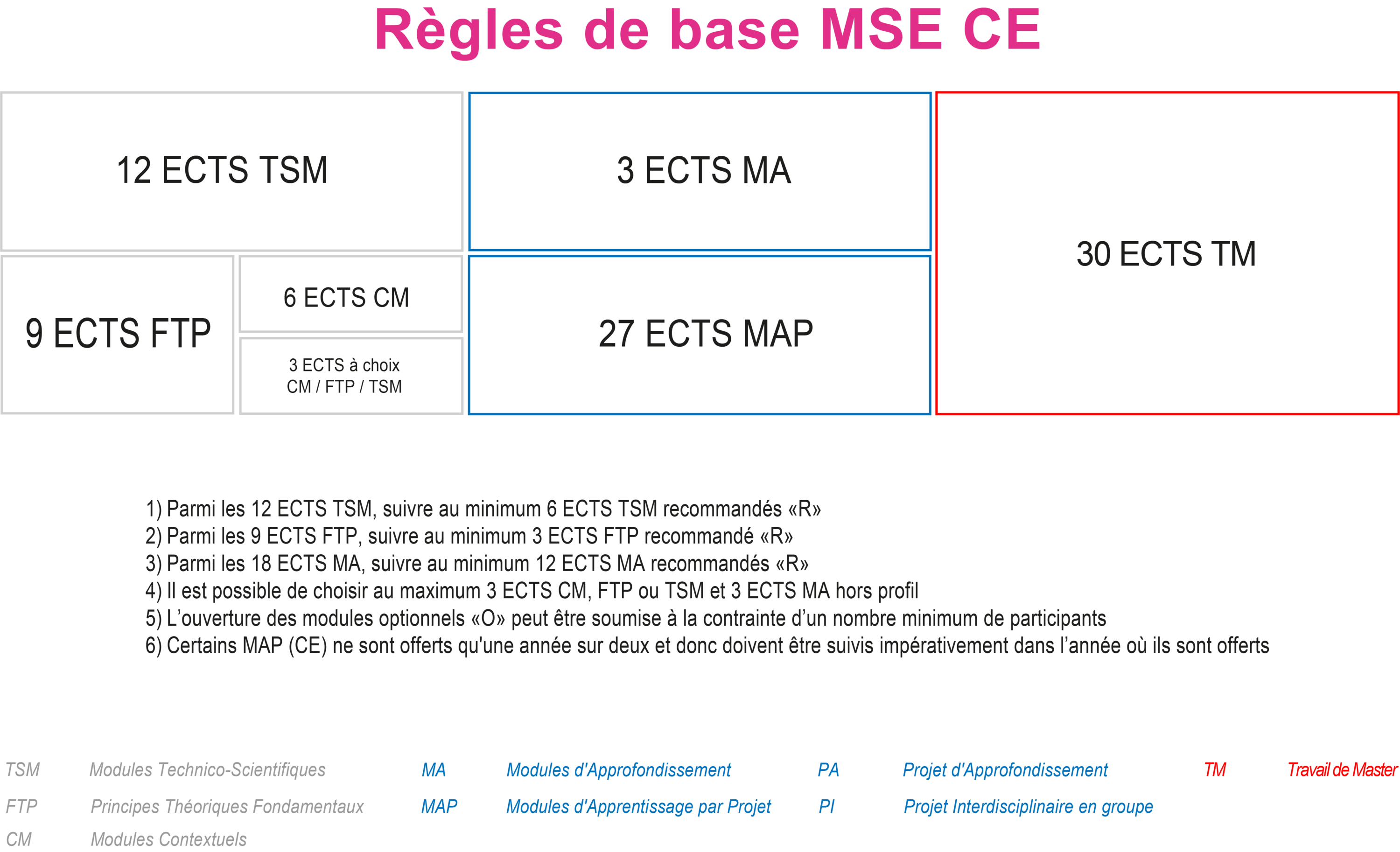The Civil Engineering major of the MSE prepares future specialists, project managers and/or senior managers in private-sector engineering firms, large corporations and public authorities, working in fields such as infrastructure, geotechnical engineering, hydraulics, transport and mobility, in Switzerland or abroad.
Concept
The Civil Engineering major (GCI) is designed with the primary aim of helping future MSE engineers to develop advanced skills in the main disciplines of civil engineering, namely:
- Structures
- Geotechnical engineering
- Hydraulics
- Transport and mobility.
The combination of targeted theoretical input and a significant proportion of practical work will enable students to:
- Build on the knowledge gained at Bachelor’s level
- Consolidate their practical experience
- Develop new skills in specific, cutting-edge areas of civil engineering, such as advanced digital analysis methods, the design and construction of civil-engineering structures (such as bridges, tunnels and dams), the interaction between structures and the ground, renaturing waterways, modelling urban hydraulics and dams, or planning and building transport infrastructure.
Future MSE engineers will have strong analytical skills and the ability to summarise, technical proficiency and an ability to exploit advanced civil-engineering technologies and methodologies to design appropriate and original solutions, and to manage complex disciplinary projects.
Target audience
The Civil Engineering major of the MSE is aimed primarily at graduates of the HES Bachelor’s programmes in Civil Engineering, the Construction and Infrastructure majors of the Geomatics course (HEIG-VD) or holders of other qualifications deemed equivalent.
Career profile
The Civil Engineering major of the MSE prepares future specialists, project managers and/or senior managers in private-sector engineering firms, large corporations and public authorities, working in fields such as infrastructure, geotechnical engineering, hydraulics, transport and mobility, in Switzerland or abroad.
Skills developed
Engineering skills
- Use their knowledge and skills to design, plan and develop civil-engineering projects innovatively and with a critical mindset
- Apply their knowledge, skills and problem-solving capabilities in unfamiliar situations, with a significant multidisciplinary component and acting with a large degree of autonomy
- Manage complexity, make choices based on incomplete or limited information, but also identify the additional knowledge they require and research to be carried out.
- Communicate clearly with both specialists and laypeople, explain and justify their choices, and document their projects at both a conceptual level and from a legal and technical perspective
- Manage a multidisciplinary project team
- Independently pursue their professional development
Specialist and complementary skills
- Understanding of natural risks
- Understanding of construction phases
- Study planning and implementation skills
- Knowledge of project and implementation constraints and procedures
- Ability to negotiate, discuss, pitch communications appropriately and manage a multidisciplinary team
- Building project management skills
Disciplines
The Civil Engineering major offers the four following “Disciplines”:
- Structures
- Geotechnical engineering
- Hydraulics
- Transport and mobility.
All applicants are asked to indicated their preferred discipline when they register for the Civil Engineering major.
The study plan for the Civil Engineering major is designed so that the Structures discipline can be taken as part of a full-time (FT) or part-time (PT) course, while the Geotechnical engineering , Hydraulics and Transport and Mobility disciplines are only offered as part of a part-time (PT) course.
The “Structures” discipline puts particular emphasis on advanced analytical and design methods for new or existing steel, reinforced concrete, timber or hybrid structures.
Specific knowledge can be developed in areas such as the non-linear behaviour of structures, the design and size of bridges, structural dynamics and quakeproof engineering, construction and monitoring techniques for load-bearing structures, the interaction between structures and the ground and building transport infrastructure.
Holders of an MSE in Civil Engineering in the “Structures” discipline will be trained in designing original solutions to resolve complex structural engineering problems. They will also be equipped to plan, manage and supervise construction sites by applying modern management technologies (BIM) and taking account of ecological considerations, construction law and the management of natural risks.
The “Geotechnical engineering” discipline builds on students’ knowledge of geomechanics, with the introduction of advanced basic laws for soils and rocks, taking the effects of water into account and using physical and digital modelling techniques.
Specific knowledge may be developed in areas such as design, size calculations and monitoring the execution of special works, tunnels and other underground structures, as well as dams and other hydraulic structures. The interaction between structures and the ground on mobile soil will also be covered for surface and deep foundations, supporting walls and covered trenches, including aspects of dynamic interaction between structures and the ground.
Holders of an MSE in Civil Engineering in the “Geotechnical engineering” discipline will be trained in designing original and technologically innovative solutions to resolve complex structural engineering problems. They will also be equipped to plan, manage and supervise construction sites and monitoring geotechnical structures, while taking account of ecological considerations, the law and the management of natural risks.
The “Hydraulics” discipline provides an opportunity to focus on advanced methods in hydrology, environmental hydraulics, sanitation networks, dams and hydrodynamic simulations.
Specific knowledge may be developed in areas such as the design and construction of dams and associated hydraulic structures, the natural hazards associated with high water levels, renaturing waterways, digital simulation methods (2D and 3D) in hydraulics, solid transport in waterways, construction aspects of urban networks of hydraulic structures, and empirical modelling.
Holders of an MSE in Civil Engineering in the “Hydraulics” discipline will be trained in designing original solutions to resolve complex hydraulic engineering problems. They will also be equipped to plan, manage and supervise hydraulic structure construction sites by applying modern management technologies (BIM) and taking account of current climate and environmental challenges.
In the “Transport” discipline, knowledge and skills in the field of organising and managing mobility are both broadened and deepened. Broadening knowledge involves both understanding and integrating mobility organisational and management strategies that determine choices around transport infrastructure, as well as the economic, social and environmental issues posed by transport systems. Deepening knowledge involves understanding complex problems and using specific tools appropriate to transport engineering, in particular in urban areas.
Specific knowledge may be developed in areas such as urban traffic management, traffic light control, digital mobility, planning public transport networks, road layouts and organisation of urban public space, the design of transport interfaces and traffic simulation models.
Holders of an MSE in Civil Engineering in the “Transport” discipline will be trained in designing original and innovative solutions to resolve complex transport engineering problems. They will also be equipped to plan, organise and manage road traffic in particular situations, such as major events and construction sites with an impact on the road network.
Contact
Dario Redaelli
Head of the CE profile (major)
HES-SO Master
Av. de Provence 6
1007 Lausanne
T + 41 58 900 00 00
mse(at)hes-so.ch




